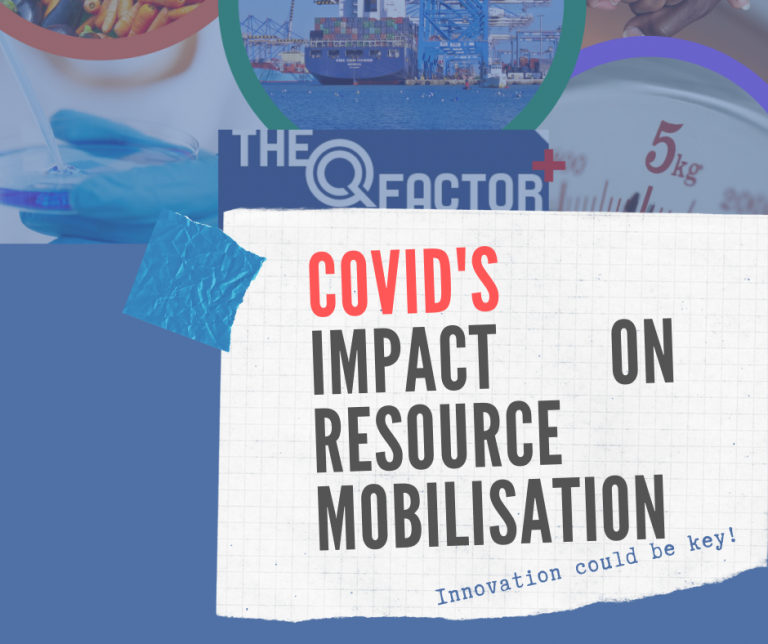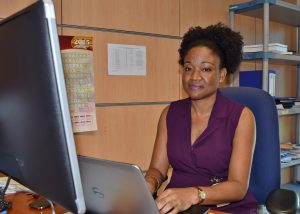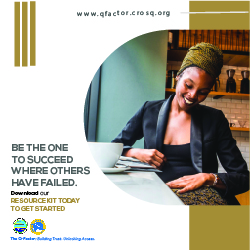COVID’s Impact on Resource Mobilisation
- crosqblog
- on Jul, 08, 2020
- Category Cooperation, CROSQ, Demand for Quality
- No Comments.

Innovation could be the answer for developmental organisations now faced with resource mobilisation challenges due to the constraints the COVID19 pandemic has placed on access to funding.
In a brief Q&A with CROSQ’s Resource Mobilisation Officer, Ms. Janice Hilaire, she noted that being in tune with the needs of our CARICOM Member States, as they adapt to a new normal, and aiding the national standards institutions to respond to those needs could be the key to weathering this period.
Q: How has the resource mobilisation function been impacted by COVID19?
JH: There’s increased pressure on resource mobilisation from two aspects – one, at the Member State level because as the result of COVID19 will be felt at the Member State level at an economic level, social level etc; but not just that, but Member States themselves will have challenges in terms of implementing their own programmes and may need more assistance in terms of regional project management and resource mobilisation. So in my opinion there will be added pressure.
Two, in addition to that, at the international level, you find that the countries who have traditionally acted as donors or administrators of funds would engage us for partnerships. I think we will see a change of priority and a lot of their funds would target or be channelled to health and social sectors.
Q: What about the various areas of CROSQ’s mandate, such as trade, energy, do you also see these being impacted?
JH: Yes. As it relates to trade, which is our main functional area, there may also be challenges there.
In relation to energy, I think we’ll find that energy is still a priority, but I think even some donors have already asked for a reallocation of funds. So there is pressure because we expect traditional funding sources will dry up and that there will be increased expectations for member states to assist as their national funds will be reallocated or redirected to higher priority areas now, or perceived higher priority areas now with the COVID19 situation.
Q: How would resource mobilitation experts such as yourself, mitigate these challenges? What should organisations like CROSQ do?
JH: I think we can redirect our thinking and become innovative to some extent, and it is not saying that areas that we focussed on two years ago are not still important or are no longer a priority, it is just saying that since there is a new normal, the approach you had two years ago would need to change to reflect the current situation.
Q: Could you elaborate, what kind of things do you think need a refocus?
JH: For example, I think that one of the issues we expect from the COVID19 is that we would have issues with the price of food. If there is a second wave, we would expect our borders – because our borders have been affected – so we would expect our borders to be affected again and in some countries you may find a shortages of certain foods. So where we can make ourselves sufficient in that industry for the region – that is the direction we would be going. Also, we look at the impact on tourism and we understand that we need, in addition to tourism, another income generating sector to move alongside tourism – which I think could be agriculture. Traditionally, it used to be agriculture, but not just that – in terms of food reliance.
So we as CROSQ now need to position ourselves and to look at areas where we can give that relevant QI support in agriculture and look for funding for those areas because it may be more forthcoming and more beneficial.
In addition to that we have to look at areas of resilience, like business-resilience and business continuity. How small businesses in particular are transitioning in this time and how they are going to function post-COVID. You find a lot of them, they don’t even know how they are going to restart, they don’t know how to go about making sure their employees are safe; they are not sure how to do certain things. So we now, have to realign and align and collaborate with sectors like tourism.
When the tourism sector comes back, how do you ensure, 1) your guests are safe, and 2) your staff are safe as well? So you need to come up with standards and guidelines and so on, and that is where I see us coming in and looking at sources of funding for that.
Q: Has work begun for CROSQ in realigning, as you indicated, in any of these areas?
JH: We had already started talks with CTO [Caribbean Tourism Organisation], and they think we can help them in terms of developing the guidelines and the guidance documents and so on – these are areas where I see us coming in.
In looking at Member States, for example, Trinidad said they were looking at doing a compliance programme for cleaning supplies because some of those supplies of cleaning chemicals are hazardous or not safe. So this is where we could position ourselves to look at standards for masks; how do your employees operate within the physical space that you have; what guidance or guidelines do you have; these are things I think we could position ourselves to try and get funding for.
As it relates to trade, which is more traditional, more developed countries have certain market requirements for small firms or as it relates to packaging and other things. Now as we have all these COVID19 challenges, you find that maybe requirements may change, they may become more stringent, they may focus more on the consumers. These small firms would need to understand what these new requirements are and I think we should position ourselves that when we look for new sources of funds or funding, we would do it so we are helping them. We try to find out what the new requirements are and our bureaux can position themselves so that they know that and we can position ourselves to help our bureaux who work directly with small firms. That’s how I see it.




